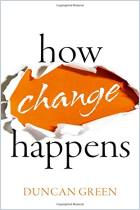Acesse a sua conta getAbstract para obter o resumo!

Acesse a sua conta getAbstract para obter o resumo!
Paul F. Steinberg
Who Rules the Earth?
How Social Rules Shape Our Planet and Our Lives
Oxford UP, 2015
Sobre o que é?
Act now – with others – to change the social rules that could permit Earth’s destruction.
Recommendation
Sustainability professor Paul F. Steinberg studies social rules and civic governance in terms of how they affect the environment. He alerts readers to something vitally important hiding in plain sight: Nations, regions, local administrations and society itself create and change the formal and informal rules that protect or exploit the Earth. These rules and regulations affect natural resources, deforestation, polluting emissions, pesticides, recycling, water rights, and much more. Such rules don’t appear spontaneously. Organizations, people and coalitions debate and fight for them fiercely. Many rules seem perverse and most citizens believe they can’t do anything to change them. But they can. Rules are mutable and, Steinberg says, people must work to change them in order to save the planet. getAbstract recommends Steinberg’s overview to executives, futurists, concerned citizens, and current or potential activists frustrated with the pace of change.
Summary
About the Author
Paul F. Steinberg is professor of sustainability and environmental policy at California’s Harvey Mudd College, where he directs the Social Rules Project. He also wrote Comparative Environmental Politics and Environmental Leadership in Developing Countries.


















Comment on this summary